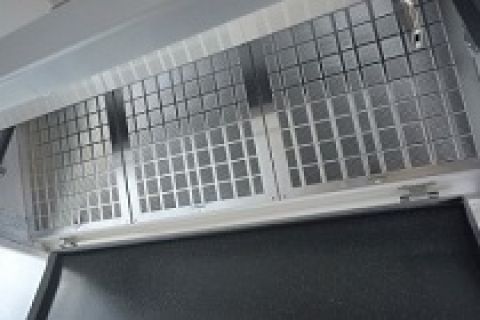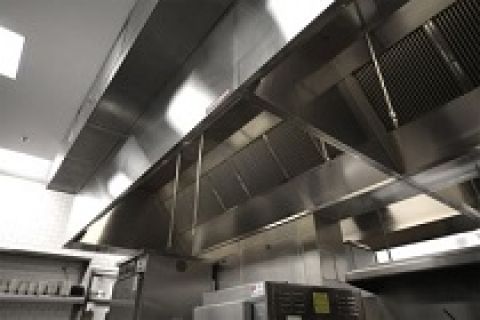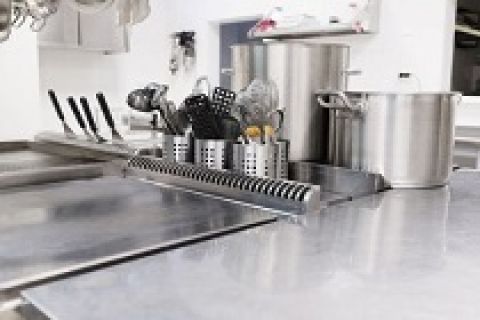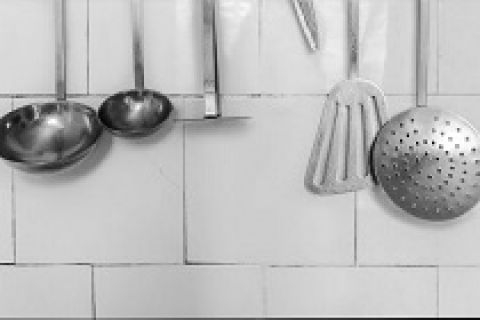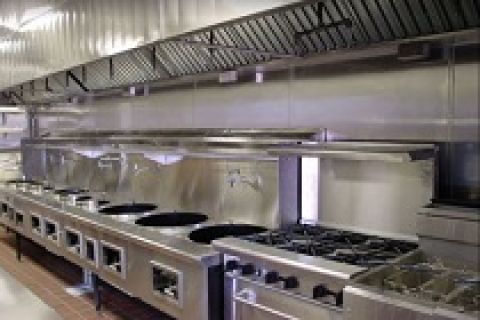Daily Cleaning vs. Deep Cleaning: Striking the Right Balance in Your Commercial Kitchen
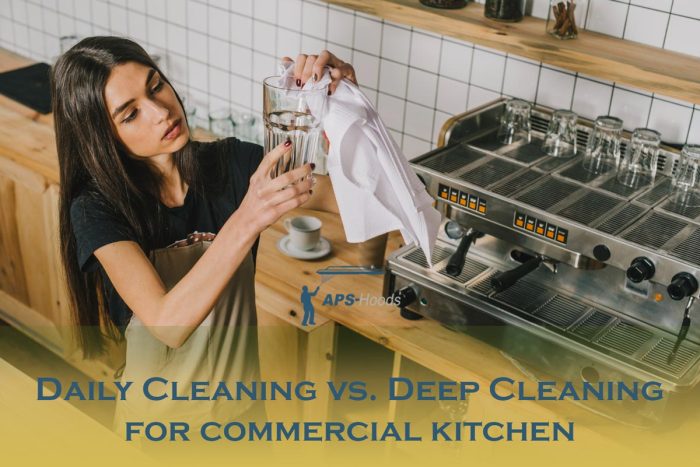
Maintaining a clean and sanitary environment is crucial for any commercial kitchen. Not only does it ensure the health and safety of your employees and customers, but it also helps you comply with regulations and maintain the longevity of your kitchen equipment. When it comes to cleaning, finding the right balance between daily cleaning and deep cleaning is essential. In this blog post, we will explore the importance of both approaches and provide practical tips to strike the right balance in your commercial kitchen.
The Significance of Daily Cleaning
Daily cleaning plays a vital role in preventing the buildup of dirt, grease, and bacteria in your commercial kitchen. Here are some key reasons why daily cleaning should be a priority:
1. Food Safety
Regularly cleaning countertops, cutting boards, utensils, and other food preparation surfaces helps eliminate cross-contamination and reduces the risk of foodborne illnesses.
2. Employee Safety
A clean and organized kitchen reduces the chances of slips, trips, and falls. Removing spills, debris, and obstacles promptly ensures a safe working environment for your staff.
3. Equipment Maintenance
Daily cleaning promotes the longevity and efficiency of your kitchen equipment. Wiping down appliances, removing grease from grills, and cleaning filters prevent the accumulation of dirt and grease, which can lead to breakdowns and costly repairs.
4. Pest Prevention
Proper sanitation practices discourage pests from infesting your commercial kitchen. Regularly cleaning surfaces, removing food debris, and sealing entry points can help keep pests at bay.
To effectively implement daily cleaning practices, create a checklist of tasks that need to be performed regularly, assign responsibilities to your staff, and ensure they have access to appropriate cleaning supplies and equipment.
Challenges of Commercial Kitchen Cleaning
1. High Volume of Operations:
Commercial kitchens are typically busy environments with a high volume of food preparation, cooking, and cleaning activities. The constant flow of ingredients, utensils, and dishes can make it challenging to keep up with cleaning tasks.
2. Grease Buildup:
Grease is a common challenge in commercial kitchens, especially in areas such as exhaust hoods, ductwork, and cooking equipment. Grease buildup not only poses a fire hazard but can also attract pests and create unpleasant odors.
3. Hard-to-Reach Areas:
Commercial kitchens have various nooks, crannies, and hard-to-reach areas that are often overlooked during regular cleaning. These areas, including spaces behind equipment, underneath appliances, and ventilation systems, require extra attention to remove dirt, grime, and bacteria.
4. Time Constraints:
The fast-paced nature of commercial kitchens can make it difficult to allocate sufficient time for thorough cleaning. With tight schedules and demanding workloads, finding time for deep cleaning and comprehensive maintenance can be a challenge.
5. Staff Training and Accountability:
Ensuring that all staff members are properly trained in cleaning procedures and understand their responsibilities can be a challenge. Lack of training or inconsistent adherence to cleaning protocols can compromise hygiene standards.
6. Compliance with Regulations:
Commercial kitchens must comply with health and safety regulations, which often have specific requirements for cleanliness and sanitation. Keeping up with these regulations and ensuring ongoing compliance can be a challenge, particularly for businesses with limited resources.
7. Proper Waste Management:
Effective waste management is crucial for maintaining cleanliness and preventing odors and pests. However, managing food waste, recyclables, and other types of waste in a busy kitchen environment can be challenging without proper systems in place.
8. Equipment Maintenance:
Regular maintenance of kitchen equipment, such as ovens, grills, fryers, and refrigeration units, is essential for cleanliness and functionality. However, finding the time and resources to perform preventive maintenance and address equipment issues can be a challenge.
9. Staff Turnover:
High turnover rates in the food service industry can disrupt cleaning routines and lead to inconsistent cleanliness standards. Training new staff members on cleaning procedures and instilling a culture of cleanliness becomes an ongoing challenge.
10. Budget Constraints:
Allocating sufficient resources for cleaning supplies, equipment, and professional cleaning services can be a challenge for businesses operating on tight budgets. However, investing in proper cleaning and maintenance pays off in the long run by reducing equipment breakdowns, improving efficiency, and maintaining a positive reputation.
Addressing these challenges requires proactive planning, effective training, clear communication, and a commitment to prioritizing cleanliness and sanitation in the commercial kitchen. Regular assessments, feedback loops, and adapting cleaning procedures based on specific needs can help overcome these challenges and maintain a clean and sanitary environment.
Waste Management
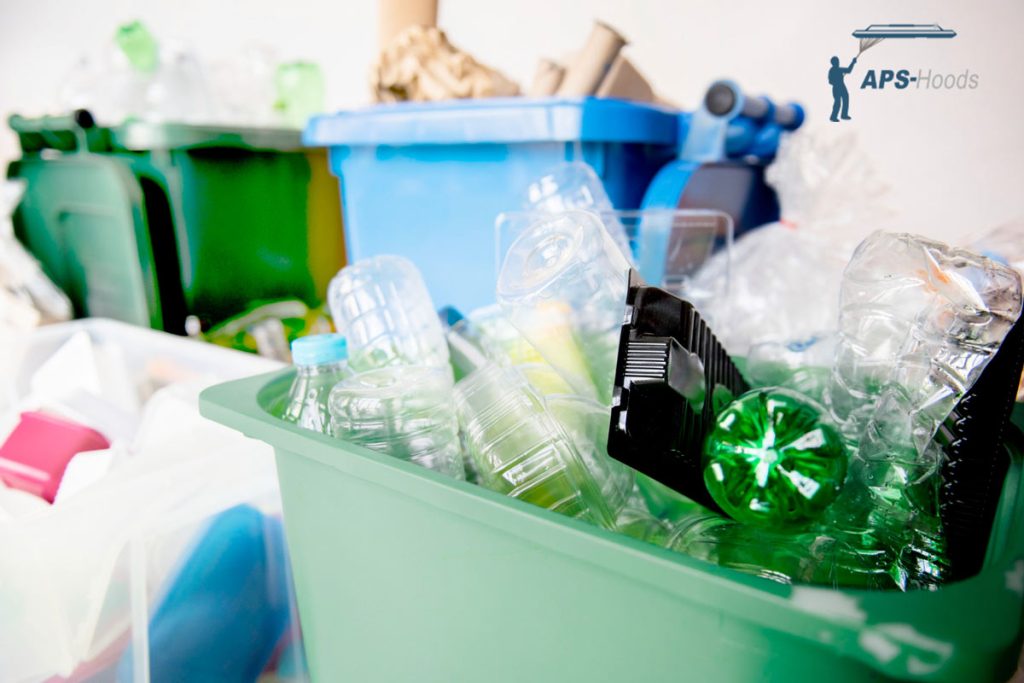
Managing waste effectively is crucial for maintaining cleanliness and minimizing environmental impact in a busy commercial kitchen. Here are some strategies for managing waste in a busy kitchen environment:
1. Implement a Waste Management Plan:
Develop a comprehensive waste management plan that outlines procedures for handling different types of waste, such as food waste, recyclables, and non-recyclable waste. Include guidelines on proper segregation, storage, and disposal methods.
2. Train Staff on Proper Waste Handling:
Provide training to all staff members on waste management practices. Educate them on the importance of proper waste segregation, recycling, and disposal methods. Clearly communicate the procedures and expectations for waste management to ensure consistency.
3. Set up Recycling Stations:
Install clearly labeled recycling stations in convenient locations throughout the kitchen. Provide separate bins for different types of recyclables, such as plastic, glass, aluminum, and paper. Ensure that staff members are aware of the recycling stations and actively use them.
4. Compost Organic Waste:
Implement a composting system for organic food waste. Set up designated bins for collecting food scraps, vegetable peelings, and other organic materials. Partner with local composting facilities or explore on-site composting options to divert organic waste from landfills.
5. Optimize Portion Control and Food Preparation:
Minimize food waste by optimizing portion control and careful food preparation. Train staff to accurately measure ingredients and follow portion guidelines. Implement inventory management systems to track and reduce food waste.
6. Use Sustainable Packaging:
Choose eco-friendly and recyclable packaging materials for takeout orders and food deliveries. Opt for biodegradable or compostable containers, utensils, and packaging whenever possible. Encourage customers to dispose of packaging responsibly.
7. Monitor and Adjust Inventory:
Regularly monitor inventory levels to avoid overstocking perishable items. Proper inventory management prevents food waste due to spoilage or expiration. Use a First-In, First-Out (FIFO) system to ensure older ingredients are used before newer ones.
8. Minimize Single-Use Items:
Reduce the use of single-use items, such as plastic straws, stirrers, and disposable cutlery. Encourage the use of reusable alternatives or provide biodegradable options. Implement refillable condiment stations instead of single-serve packets.
9. Partner with Waste Management Services:
Collaborate with waste management services that specialize in commercial kitchen waste. These services can provide guidance, pickup schedules, and proper disposal methods for different types of waste generated in your kitchen.
10. Regularly Audit and Evaluate:
Conduct regular waste audits to assess the effectiveness of your waste management practices. Analyze waste data, identify areas for improvement, and make necessary adjustments to your waste management plan.
By implementing these strategies, you can minimize waste, promote recycling, and create a more sustainable and environmentally friendly operation in your busy commercial kitchen. Remember to involve and educate your staff, track progress, and continuously seek opportunities for improvement.
The Importance of Deep Cleaning
While daily cleaning addresses immediate hygiene concerns, deep cleaning takes it a step further by tackling hard-to-reach areas and stubborn buildup. Here’s why deep cleaning should be incorporated into your maintenance routine:
a) Eliminating Hidden Dirt and Bacteria:
Over time, dirt, grease, and bacteria can accumulate in places that are not easily accessible during daily cleaning. Deep cleaning reaches these hidden areas, such as behind equipment, inside vents, and under appliances, ensuring a thorough and hygienic environment.
b) Enhancing Air Quality:
Neglected ventilation systems and exhaust hoods can become breeding grounds for grease buildup and airborne contaminants. Deep cleaning these systems improves air quality, reduces fire hazards, and maintains the efficiency of your kitchen’s ventilation.
c) Extending Equipment Lifespan:
Deep cleaning helps remove stubborn grease and grime that can deteriorate the performance and lifespan of your kitchen equipment. By investing in regular deep cleaning, you can avoid costly repairs or premature replacements.
d) Compliance with Regulations:
Health and safety regulations often require periodic deep cleaning to maintain a clean and safe commercial kitchen. Failure to comply with these regulations can result in fines, penalties, or even closure of your establishment.
Consider scheduling deep cleaning sessions during slow periods or when your kitchen is closed to minimize disruptions to your daily operations. Hiring professional cleaning services specializing in commercial kitchens, like APS Hoods, ensures a thorough and efficient deep cleaning process.
Striking the Right Balance
Finding the right balance between daily cleaning and deep cleaning is crucial for the overall cleanliness and functionality of your commercial kitchen. Here are some practical tips to help you strike that balance:
Establish Clear Cleaning Procedures:
Develop comprehensive cleaning procedures that outline daily cleaning tasks and the frequency of deep cleaning activities. Ensure that your staff is well-trained in these procedures and understands the importance of following them consistently.
Delegate Responsibilities:
Assign specific cleaning tasks to different team members to ensure accountability and efficiency. Rotate responsibilities regularly to prevent monotony and maintain a fresh perspective on cleaning duties.
Invest in Training:
Provide your staff with adequate training on proper cleaning techniques, including the use of cleaning agents, equipment, and safety protocols. Regular training sessions help reinforce the importance of cleanliness and keep your team up-to-date with industry best practices.
Implement Cleaning Schedules:
Create a cleaning schedule that includes both daily cleaning tasks and periodic deep cleaning activities. Clearly define the frequency and scope of each task, ensuring that all areas and equipment are covered adequately.
Partner with Professional Cleaning Services:
Engaging professional cleaning services, such as APS Hoods, can alleviate the burden of deep cleaning and ensure a thorough and compliant cleaning process. These experts have the knowledge, experience, and specialized equipment to tackle even the most challenging cleaning tasks.
Schedule a Commercial Kitchen Deep Cleaning with APS Hoods in Denver, CO
Maintaining a clean and hygienic commercial kitchen requires a balanced approach that combines daily cleaning practices with periodic deep cleaning sessions. By prioritizing both aspects, you can ensure the health and safety of your staff, comply with regulations, and prolong the lifespan of your kitchen equipment. Strive for consistency, train your team effectively, and consider partnering with professional cleaning services to achieve the highest standards of cleanliness in your commercial kitchen. Remember, a clean kitchen is not just a reflection of your professionalism; it is also a fundamental requirement for the success and reputation of your establishment.
Contact APS Hoods today to schedule a commercial kitchen cleaning. Send us an email or call (800) 750-7313 for a free quote.
Tags: Commercial Kitchen Cleaning, Deep Cleaning, Restaurant Cleaning


